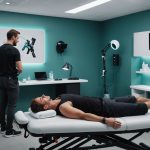Influence of UK Health Professionals on Patient Education
UK health professionals hold a critical responsibility in enhancing patient education. Whether in the NHS or private healthcare environments, their roles extend beyond diagnosis and treatment to ensuring patients understand their conditions and care. This commitment aids in better health outcomes and empowers patients to make informed decisions.
Key methods UK health professionals use to convey healthcare information include verbal explanations during consultations, tailored written materials, and digital resources such as patient portals or apps. These professionals often adapt their communication style to match patient needs, ensuring clarity and comprehension.
Also to discover : How Can Health Professionals in the UK Improve Public Trust in Their Services?
Within the NHS, patient education frequently leverages structured frameworks, emphasizing accessibility and consistency across services. In contrast, private healthcare settings may offer more personalized educational experiences, catering to individual preferences and lifestyle needs. However, regardless of the context, UK health professionals remain focused on fostering a supportive environment where patients can ask questions and engage actively in their health management. This tailored approach reflects the diverse healthcare roles present across the UK and highlights the pivotal contributions of its professionals to patient education.
Strategies and Tools Utilised in UK Patient Education
Enhancing communication and engagement through diverse methods
Also read : How Can UK Health Professionals Adapt to New Health Technologies?
Effective patient education strategies in the UK rely on a combination of written, digital, and verbal communication methods. Written materials, such as leaflets and brochures, provide clear, structured information that patients can refer back to at their own pace. Digital tools, including online portals and mobile apps, offer interactive platforms that enhance patient engagement and allow real-time access to health information tools. Verbal communication remains vital, enabling healthcare professionals to tailor discussions according to individual patient needs.
Integration of NHS guidelines ensures that all educational content is evidence-based and consistent across settings. The NHS provides extensive patient information resources and decision aids that help clarify treatment options and support informed decision-making. These resources are carefully designed to be understandable and trustworthy, reinforcing the quality of education.
Another critical element is cultural competence and accessibility. Effective patient education strategies must consider language barriers, varying literacy levels, and cultural contexts. This approach ensures that communication is inclusive and accessible, allowing all patients to benefit from the available health information tools, enhancing their understanding and health outcomes.
Evidence-Based Outcomes of Patient Education in the UK
Patient education outcomes in the UK demonstrate clear benefits in both individual health and wider system efficiency. Studies reveal that patients who receive tailored education show measurable improvements in understanding their conditions and self-management skills. This enhanced comprehension often translates into better adherence to prescribed treatment protocols.
According to UK healthcare statistics, when patients actively participate in their care through education, there is a notable reduction in hospital readmissions and complications. One national health report highlights an improvement in chronic disease management, where educated patients reported fewer symptoms and enhanced quality of life. These results underscore the value of structured patient education programs within the NHS.
Crucially, audits of patient education interventions reveal that effective education supports health improvement by empowering patients to recognize early warning signs and manage medication correctly. This proactive engagement leads to more timely interventions and decreased healthcare costs. Such evidence-based outcomes affirm that investing in patient education is not only beneficial for individual wellbeing but also essential for sustaining UK healthcare’s overall performance.
Barriers and Solutions in UK Patient Education
Understanding key challenges and practical responses
Patient education barriers in the UK significantly impact health outcomes, primarily due to language barriers, limited health literacy, and uneven resource availability. Patients from diverse backgrounds may struggle to understand medical advice when language support is lacking. Similarly, low health literacy prevents many from engaging fully with their care plans. Resource constraints, especially in deprived areas, further widen these inequalities.
Addressing these challenges requires tailored solutions. Interpreter services are crucial in bridging communication gaps, ensuring patients comprehend complex information. Additionally, producing customized educational content that considers cultural relevance and literacy levels improves understanding. Community programmes focused on outreach and engagement empower patients in marginalized groups to participate actively in their health management.
Multidisciplinary teams play a pivotal role in enhancing patient support. By integrating specialists such as nurses, social workers, and pharmacists, these teams provide holistic care that tackles educational barriers from multiple angles. This collaborative approach not only improves comprehension but also fosters trust and adherence to treatment plans, ultimately reducing UK health inequalities and promoting equitable health education.
The Role of Guidelines and Training in Shaping Patient Education
The NICE guidelines play a pivotal role in defining how health professionals in the UK approach patient education. These standards emphasize delivering patient-centred care that tailors information to individual needs, ensuring clarity and relevance. By following NHS protocols grounded in NICE recommendations, clinicians provide education that supports informed decisions.
Continuous health professional training UK initiatives reinforce these guidelines, fostering skills that enable practitioners to communicate effectively and compassionately. Training programs highlight the importance of shared decision-making—encouraging patients to actively participate in their care plans. This approach not only respects patient autonomy but also improves treatment adherence and outcomes.
NICE guidelines advocate for empowering patients through comprehensive education materials and responsive dialogue. Professionals trained in these principles are better equipped to adapt educational methods based on patient preferences and health literacy levels. Thus, ongoing education for healthcare workers directly influences the quality and effectiveness of patient-centred care within the NHS framework.
Expert Perspectives and Future Trends in Patient Education
Experts in health education emphasize the growing importance of patient empowerment UK-wide. Frontline professionals report that when patients are well-informed, their engagement and health outcomes improve significantly. This insight is driving a shift towards more collaborative healthcare models.
Emerging technologies are transforming patient education. Digital health platforms allow seamless access to tailored information and care pathways. Mobile apps and e-learning tools foster continuous learning, making health management more accessible and personalized. These innovations bridge gaps between clinical visits, supporting patients in real-time.
Looking ahead, UK healthcare innovation is expected to integrate advanced technology with policy changes that promote patient autonomy. Policies are evolving to highlight education as a core component of care, encouraging health services to adopt evidence-based digital solutions. This alignment strengthens the patient’s role while supporting professionals in delivering tailored resources efficiently.
By combining expert opinions health education with healthcare innovation, the future of patient education is poised to be more dynamic, inclusive, and focused on empowering individuals to take control of their health journeys.







